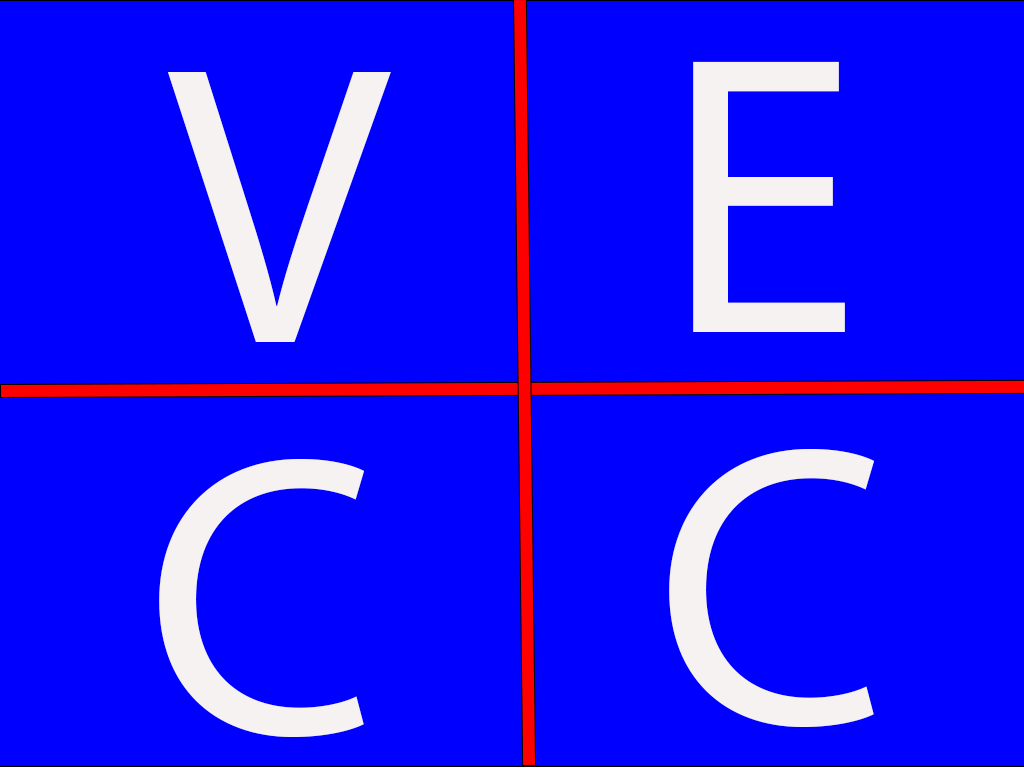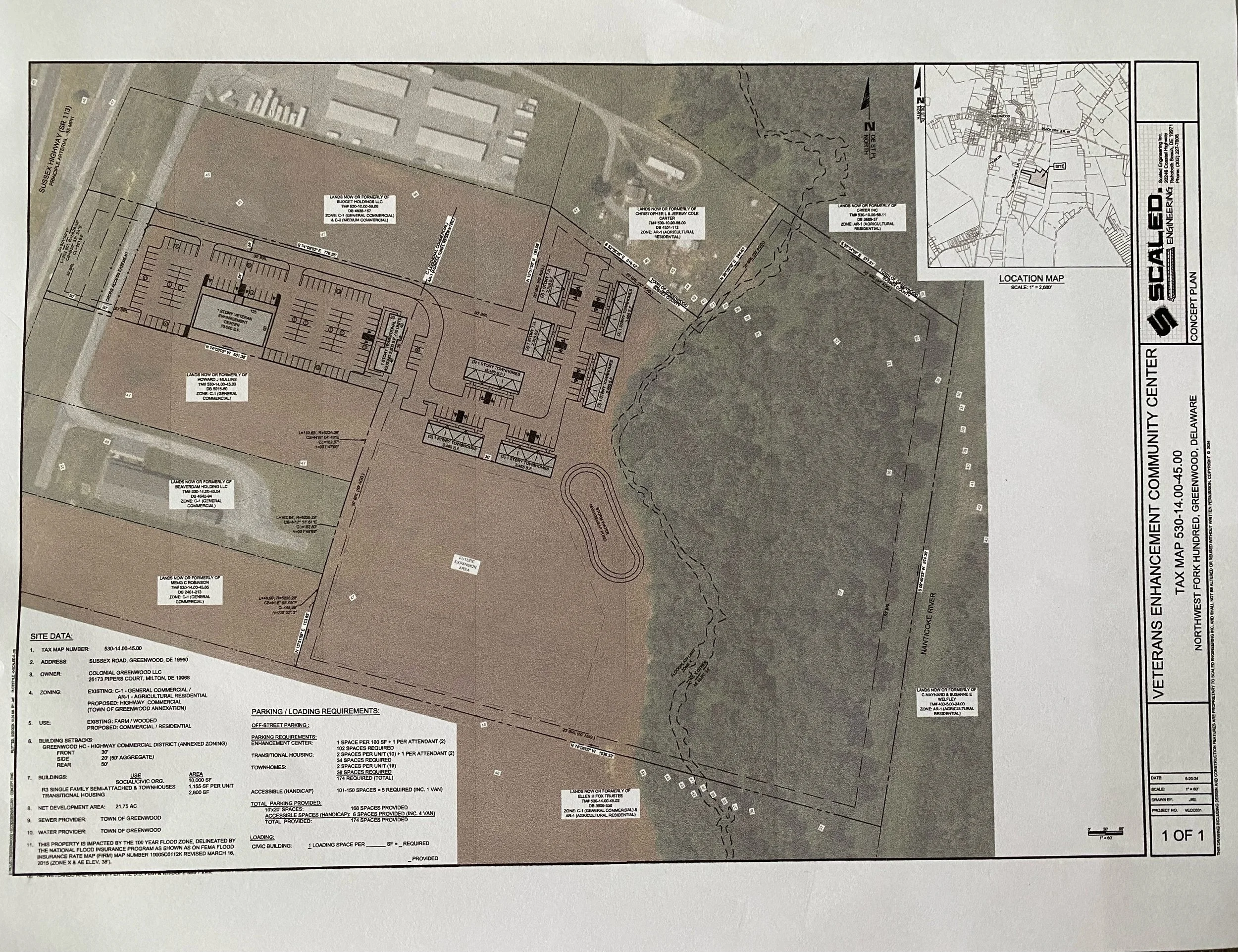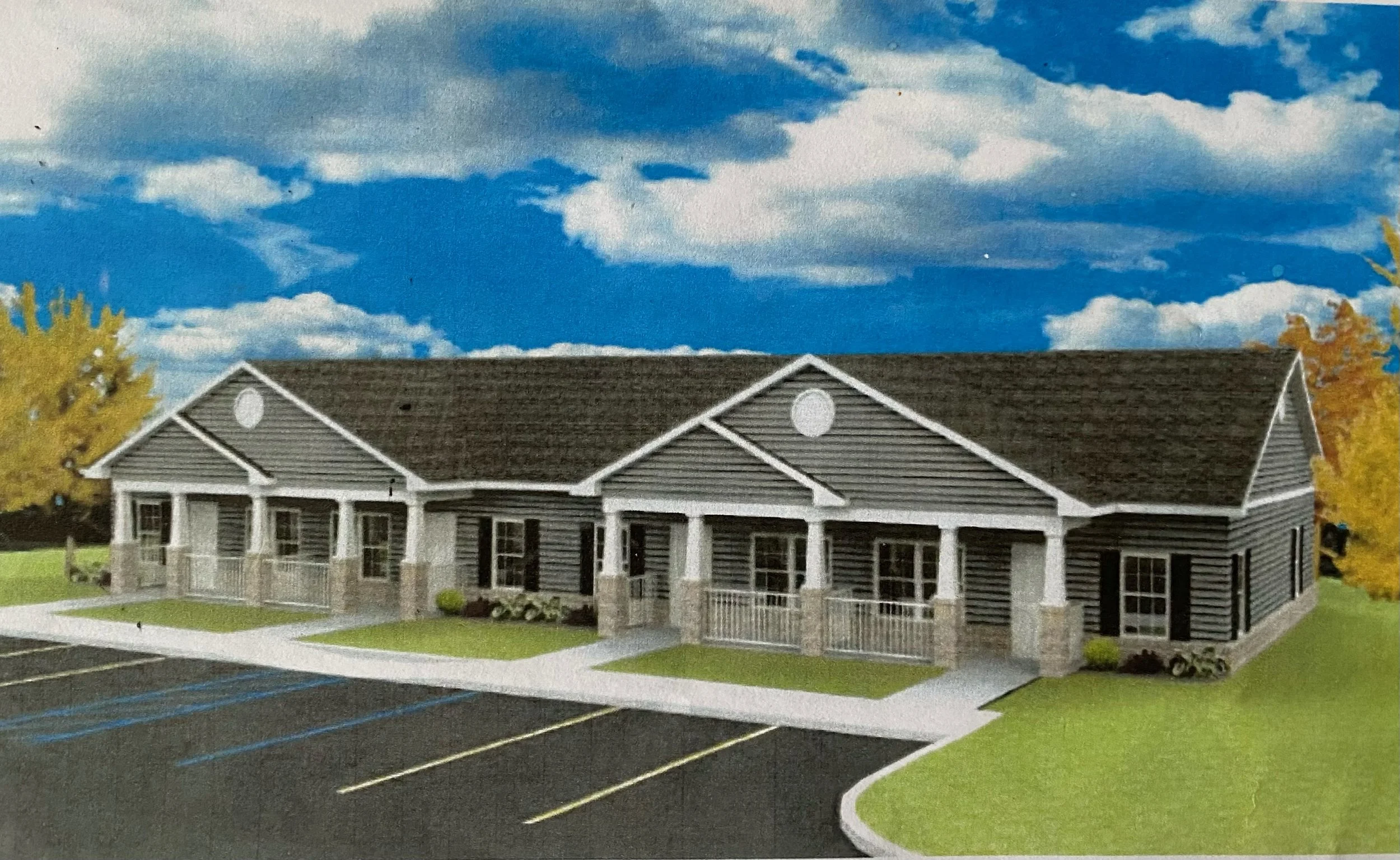It all begins with an idea.
“I’m 61 years now. If there had been a program like this before, my life would have been a lot different. When I needed help, I was sent to Dover, DE, Coatesville, PA, and Pittsburgh, PA. I was there for an entire year. What I really needed was local VA support.”
This comment from a Greenwood Veteran could be repeated by other Veterans in Sussex County who find themselves in need of transitional housing and other supportive services. Four years ago, United States veterans of overseas conflicts began brainstorming sessions, which centered on how to serve veterans, the military, the local communities and advocate on behalf of all veterans in the Greenwood, DE and Sussex County areas. While exploring new ways to further this mission, the Veterans Enhancement Community Center was born.
History of Service
As veterans returned home to Sussex County, Delaware, it became evident there was a need and a desire to offer support. Ralph H. Moore and 44 other World War II concerned veterans met on May 22, 1946, ultimately establishing VFW Post 7478 in Greenwood, Delaware.
Veterans have consistently served the Greenwood community for over 75 years. Service has included the donation of hours supporting local school youth fund drives and sports, local food bank drives, student scholarship donations, teacher and first responder recognition awards.
From this foundation of community service, veterans will partner with local agencies and build the Veterans Enhancement Community Center(VECC).
Veterans Enhancement Center
The vision for the Veterans Enhancement Community Center (VECC) is to become the Premier Veteran’s resource center in Sussex County, Delaware. The idea for the VECC began in 2019. Ralph Moore (first Post Commander of VFW Post 7478), Robert Trapp (current Post Commander), and Robert Boyd of Regional Builders, Inc. (RBI) met to discuss fulfilling the need for Veterans services in Western Sussex County, Delaware.
Recently, a group of concerned veterans have formed the non-profit organization, Veterans Enhancement Community Center (VECC), which has a goal of helping veterans and the local community. The Veterans Awareness Center Foundation has provided early support and guidance for this project.
Planning for the VECC is in the early stages. Working collaboratively with Regional Builders, Inc.(RBI), the framework for the VECC has been created. RBI is providing consulting and project management services during the construction phase of the VECC building.
The VECC will be a fully accessible, well-equipped, modern 10,000 sq ft building capable of facilitating the needs of both veterans and the community at large. VECC will be in Greenwood, Delaware off Route 13. The VECC will be developed in two phases. Phase 1 is currently being developed to include the following elements:
· Transitional housing units (8)
· Community offices for veteran and community support services (8)
· Multipurpose gymnasium that can be repurposed for use as a large event space
· Health and fitness rooms (2)
· Conference rooms (2)
· Classrooms and meeting spaces
The exact space configuration will be finalized after conversations with the Greenwood community and key stakeholders. Phase 2 will include permanent housing for individuals and families.
The Need for Recreation
0. That’s the number of YMCA’s, workout centers, or other public recreational facilities located in Greenwood, Delaware. Residents must drive to Felton, Seaford or Milton if they want a traditional workout experience. Studies have shown the positive impact of fitness and recreation on physical health, mental health, and quality of life.
Physical Health: Health is wealth. Recreational activities, improve one’s health like maintaining lower body fat percentages, lowering blood and cholesterol levels, increasing muscular strength, flexibility, muscular endurance, body composition and cardiovascular endurance. It also increases stamina and energy level.
Mental Health: Mental health is essential for overall physical health. Recreational activities help manage stress. It provides a chance to nurture oneself and provides a sense of balance and self-esteem, which can directly reduce anxiety and depression. Both of which have increased since the pandemic.
Improved Quality of Life: People who make recreation a priority are more likely to feel satisfied with their lives overall. Recreational activities help create a balance between daily pressures with physical and mental well-being. The effects of recreation are multifold. It enriches self-expression, self-fulfillment ability, interpersonal skills, techniques and methods of using leisure, physical strength, creative expression, and aesthetic sense.
The VECC will offer multiple opportunities for community residents to engage in activities that stimulate their well-being. Activities will be based on community interests and current gaps.
The Need for Housing
2,369. That’s the number of Delawareans experiencing homelessness during the 2022 Point in Time (PIT) Count. It’s the highest number to date and is more than doubled the number counted in January 2020, right before the pandemic.
2017 2018 2019 2020 2021 2022
Number of People Experiencing Homelessness (from PIT Count)
Housing for Veterans has also worsened. The number of Veterans experiencing homelessness increased to 93 households in 2022, which is the highest number since 2016. And as the population continues to shift, the number of unhoused persons in Sussex County is increasing. In 2022, 1 in 3 Delawareans who experienced homelessness on the night of the PIT were in Sussex County. HOMELESSNESS BY COUNTY, 2022 (from PIT Count)
The three primary causes of homelessness, according to National Homelessness Law Center, are:
1. Lack of affordable housing: The number of renters with extremely low incomes far surpasses the number of available affordable rental units. A 2012 study found only 5.8 million rental units affordable to the more than 10 million households that identify as extremely low income. After paying rent and utilities, 75% of those households end up with less than half of their income to pay for necessities such as food, medicine, transportation, or childcare.
2. Unemployment: Homelessness and employment are public issues that have a greater correlation than it may appear. Giving individuals a place to live only solves part of the problem, they also need to be provided with resources that will prepare them to maintain their residencies. Resources such as job training are vital to helping individuals organize their life and aid them in becoming financially stable. An individual cannot move up the social ladder if they are unemployed.
3. Poverty: NationalHomeless.org notes, “homelessness and poverty are inextricably linked. Poor people are frequently unable to pay for housing, food, childcare, health care, and education. Difficult choices must be made when limited resources cover only some of these necessities. Often it is housing, which absorbs a high proportion of income that must be dropped. If you are poor, you are essentially an illness, an accident, or a paycheck away from living on the streets.”
The COVID-19 pandemic only exacerbated the homeless issue. The Urban Institute found that pandemic-related poverty hit communities of color, namely Latin American and African American communities, hardest. The number of emergency shelter beds in Delaware has increased but there is a growing need for intermediate housing, like transitional housing and long-term permanent housing.
The VECC will not only provide transitional housing for Veterans but also offer key support services that address the issues that led to homelessness. Support services will increase their likelihood of successfully securing permanent housing.
The transitional housing program is currently being developed. While the housing units will be for Veterans, the support services and resources will be available to community members.
Funding
VECC Board of Directors are in the process of negotiating a loan to cover all or a portion of the land acquisition and building costs for phase I. Additionally, the Board of Directors are vetting grants professionals to secure foundation, corporate, and government grants. Current cost projections are approximately $5.0M, excluding operational costs.


